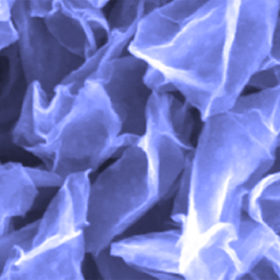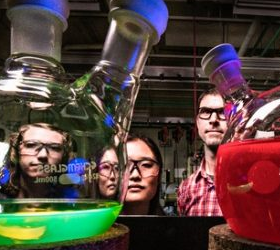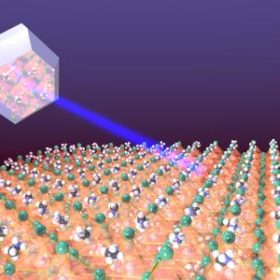Researchers double life of lithium-ion batteries by adding graphene girders
By reinforcing the anode’s structure with graphene girders, researchers at the U.K.’s University of Warwick have found an effective approach to replacing graphite in the anodes using silicon, thus boosting the capacity of lithium-ion batteries, and more than doubling lifespans.
Berkeley Lab researchers develop perovskite ‘smart window’ material
Scientists from the renowned U.S. Berkeley Laboratory have discovered a perovskite material, which can be used in photovoltaic glass applications, and can be switched between transparent and non-transparent without diminishing its electronic properties.
AEE outlines key cyber security threats, as energy goes digital
A new report published by the U.S. Advanced Energy Economy Institute (AEE) identifies the biggest threats, and challenges for regulators, policymakers, technology providers and other players in protecting rapidly evolving energy systems from cyberattacks.
Scientists develop porous scaffold to boost battery capacity
Researchers from Northwestern University’s McCormick School of Engineering worked with a graphene structure, the particles of which resemble ‘crumpled paper balls’, and have created a scaffold onto which lithium atoms can be deposited.
NREL scientists observe perovskite degradation at nano-scale
A team from the U.S. National Renewable Energy Laboratory (NREL) has developed a novel microscopic technique, which enables them to observe degradation in perovskite materials at the nano-scale, and pinpoint key areas for attention in their efforts to improve the stability and durability of the material.
Longi achieves record conversion rate of 20.41% for PERC modules
Longi Green Energy Technology has announced a new record conversion rate of 20.41% for its P-type PERC monocrystalline modules (type 60).
Leading research institutes to collaborate on flexible CIGS
Two of Europe’s leading research institutes, Germany’s Centre for Solar Energy and Hydrogen Research Baden Württemberg (ZSW) and the Institut Photovoltaïque D’Île de France (IPVF) have announced plans to closely cooperate in researching concepts for flexible solar cells utilizing CIGS technology.
Chinese researchers develop new gas-solid perovskite process
In another attempt at cracking the perovskite stability problem, scientists from China’s Liaocheng University and Hefei University of Technology have developed a new gas-solid process for the creation of perovskite thin films, which they say can lead to improved stability and response time.
Skanska, Saule Technologies to install BIPV perovskite modules on office buildings
The two companies have signed a license agreement. The first pilot projects with the semitransparent perovskite solar cells are planned for this year in Poland
Harvesting energy from ‘hot’ electrons could boost perovskite efficiency
Scientists from the University of Groningen have discovered a tin-based perovskite material in which electrons retain high energy levels for much longer than previously. This discovery could allow for the creation of very high efficiency perovskite cells, by eliminating a large portion of energy loss through heat.










